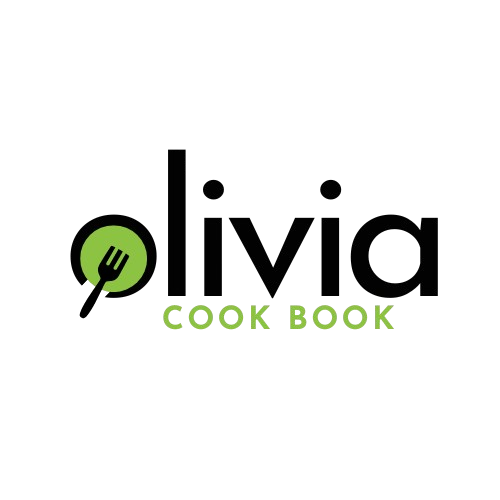Homemade Egg Bagel: A Deliciously Soft and Chewy Recipe
Egg bagel bring a unique richness and softness that’s slightly different from traditional bagels. Adding eggs to the dough gives the bagels a touch of color, a soft crumb, and a deliciously chewy texture that bagel lovers crave. This easy guide will walk through each step to create bakery-quality egg bagel right in your kitchen.
Bagels are often seen as a weekend treat or a special indulgence, but with this easy-to-follow recipe, you can enjoy fresh egg bagel any time you like. Plus, we’ll cover some creative serving ideas, like turning these into Stuffed Bagels with delicious fillings baked right inside.
Ingredients for Egg Bagel
| Ingredient | Quantity |
|---|---|
| All-purpose flour | 4 cups |
| Large eggs | 2 (room temperature) |
| Warm water | 1 cup |
| Active dry yeast | 2 ¼ teaspoons |
| Sugar | 2 tablespoons |
| Salt | 1 tablespoon |
| Optional toppings | Sesame seeds, poppy seeds, etc. |
Tip: For a slightly denser texture, try using bread flour instead of all-purpose flour.
Why Add Eggs to Bagels?
Egg bagel stand out from traditional bagels because they include eggs in the dough. The eggs provide:
- Richness and Color: Eggs give a natural golden color and richer flavor.
- Softer Texture: The protein in eggs creates a soft crumb, making egg bagel slightly more tender than plain bagels.
- Added Nutrients: Eggs increase the protein content, adding a small nutritional boost.
By following this recipe, you’ll achieve a soft and delicious egg bagel with just the right amount of chew.
Step-by-Step Recipe for Homemade Egg Bagel
Creating egg bagel is easier than you might think, even if you’re a novice baker. Below is a breakdown of the steps to achieve that perfect bakery-quality result.
Prepare the Dough
Grab a bowl and toss in the flour, sugar, and salt. In a separate bowl, stir the warm water and yeast together, letting it rest for a few minutes until it turns frothy (that’s the yeast waking up!).
Lightly whisk the eggs, then pour them into the yeast mixture.
Now, bring the wet ingredients into the dry ones and mix until you see a dough start to form
Knead the Dough
Place the dough on a floured surface and start kneading for about 10 minutes. You’ll know you’re on the right track when the dough becomes smooth and stretchy—that’s the gluten working its magic to create that perfect chewy texture!
If you’re using a stand mixer, just pop on the dough hook and knead for 5–6 minutes on medium speed.
First Rise
Transfert the dough in a greased bowl, cover it up with a damp towel, and let it rest in a cozy, warm spot for about an hour. Give it time to double in size—this rising phase is what gives your bagels their perfect fluffy texture!
Shape the Bagels
Give the dough a good punch to knock out any air bubbles, then divide it into 8 equal pieces. Roll each piece into a smooth ball—this helps create that classic bagel shape!
To get that perfect bagel shape, poke a hole right in the center of each dough ball. Then, gently stretch it out until it’s about 2 inches wide—that’ll give you the classic look and texture of a homemade bagel!
Boil the Bagels
Boiling is a key step for creating that signature bagel chew. Fill a large pot with water and bring it to a gentle boil. Carefully add the bagels, boiling each side for about 1 minute.
For an extra boost of flavor and a bit of added texture, try adding a tablespoon of sugar or honey to the boiling water. It gives the bagels a subtle sweetness and helps with that perfect golden crust!
Add Toppings
After boiling, brush each bagel with a bit of beaten egg for shine, then sprinkle with sesame seeds, poppy seeds, or everything bagel seasoning, if desired.
Bake
Set the oven to 420°F (219°C) to preheat. After boiling, place the bagels on a parchment-lined baking sheet, and bake for 20-25 minutes, baking until they’re beautifully golden brown.

Serving Suggestions: Ways to Enjoy Egg Bagel
Egg bagel are versatile and can be enjoyed with various spreads, fillings, and toppings. Here are a few popular ways to serve them:
- Classic with Cream Cheese: A classic choice, try whipped cream cheese for a light, airy spread.
- Egg and Cheese Bagel Sandwich: Layer on scrambled eggs, melted cheese, and crispy bacon to create a hearty breakfast bagel sandwich that’s both filling and delicious!
- Smoked Salmon and Capers: For a luxurious twist, add smoked salmon, capers, and red onion.
- Stuffed Bagel: If you want to get creative, try making Stuffed Bagels by adding cheese or cream cheese inside before baking. The filling melts inside the dough, creating a delicious surprise in every bite.
Frequently Asked Questions (FAQ)
Q: Do egg bagel have more calories than regular bagels?
A: Due to the eggs, egg bagel may have slightly more calories, but they also contain additional protein and vitamins.
Q: Can I freeze egg bagel?
A: Yes, egg bagel freeze well. Allow them to cool completely, wrap individually, and store in a freezer-safe bag. To enjoy, warm in the oven.
Q: How long do homemade egg bagel stay fresh?
A: These bagels are best when enjoyed freshly baked, but you can store any extras in an airtight container for up to 3 days to keep them soft and chewy.
Nutritional Information for Egg Bagel
Egg bagel are a balanced choice with added protein from the eggs. Here’s a rough nutritional breakdown per bagel:
| Nutrient | Amount |
|---|---|
| Calories | 250 |
| Protein | 9g |
| Carbohydrates | 45g |
| Fat | 4g |
This nutritional profile makes egg bagel a satisfying choice for breakfast or lunch.
The Benefits of Making Bagels at Home
There’s something incredibly rewarding about making your own bagels. Not only do you control the ingredients, but homemade bagels often taste fresher and have a better texture than store-bought options. Plus, you can customize the recipe to suit your preferences, whether it’s adding toppings, changing the flour, or creating unique Stuffed Bagel varieties.

Tips for Perfect Egg Bagel Every Time
- Use Fresh Yeast: Fresh yeast ensures a good rise, which is essential for fluffy bagels.
- Don’t Skip Boiling: Boiling sets the crust, giving bagels their signature chew.
- Experiment with Flavors: Try mixing herbs, spices, or even cheese into the dough for added flavor.
Conclusion: Enjoying Your Homemade Egg Bagel
With this simple recipe, you can create fresh egg bagel at home any time you’re craving a classic treat. Whether you enjoy them plain, topped with seeds, or stuffed with flavorful fillings, these bagels offer endless possibilities.
Try the recipe and enjoy the satisfaction of homemade bagels, or take it up a notch by making a Stuffed Bagel version filled with your favorite ingredients. There’s no end to the creative ways you can enjoy these delightful bagels!










